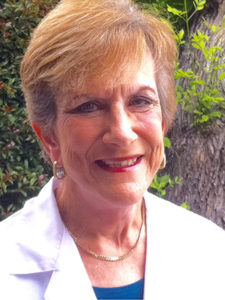
Once upon a time, rheumatology was simpler, with only one known bad player in the immune system, TNF-a, and one set of TNF inhibitors. Fast forward to 2018 and the expanding universe of potentially adverse cytokines affecting the immune system and at least as many agents that may block some of the pathologies involved in rheumatologic disease.
“The basic question we all face is, what happened that our patient woke up one day and was suddenly allergic to himself?” said Jacqueline Fritz, RNMSN, CNS-RN-BC, Director of Education at the Medical Advancement Center in Los Alamitos, CA. “Cytokine blocking has become part of our everyday life, and there isn’t one of us in practice who doesn’t want to sit down, take a look at the basics again, and move on to what we are doing this very minute to mediate cytokines to improve our patients. That’s Immunology Boot Camp, and that’s why it is packed every year.”
Ms. Fritz will moderate Immunology Boot Camp for 2018. Troy R. Torgerson, MD, PhD, Associate Professor of Pediatric Immunology/Rheumatology at the University of Washington School of Medicine, Director of the Immunology Diagnostic Lab and Co-Director of the Non-Malignant Transplant Program at Seattle Children’s Hospital, will return as the primary presenter.
Day 1, “Basis of Targeted Therapy,” will review the building blocks of innate and adaptive immunity on Sunday from 11:00 am – 12:00 pm in Room W375a. Day 2, “Basic Mechanisms of Autoimmunity,” will explore the pathways gone wrong that lead the body to suddenly see itself as foreign on Monday from 7:30 – 8:30 am in Room S100a.
Day 3, “Applying Immunology Principles to Treatment Decisions,” will turn autoimmune theory into effective therapy on Tuesday from 7:30 – 8:30 am in Room S100bc. This final session will be co-presented by Dr. Torgerson and Sandro Perazzio, MD, PhD, researcher and staff rheumatologist at the Escola Paulista de Medicina at the Universidade Federal de São Paulo, Brazil. Dr. Perazzio focuses on the interface between autoimmunity and immunodeficiency.
“Immunology is something you can never hear too much about,” Fritz said. “The building blocks of innate and adaptive immunity haven’t changed much, but understanding the nuances of those basics is terribly important when it’s your patient asking, why am I suddenly allergic to myself and what can you do about it?”
The progression of autoimmunity gets more complex every year. The initial culprit was TNF. Then researchers turned their attention to T cells, then B cells, JAK (Janus kinase), IL-6, IL-27/12, and a growing list of biologically active proteins with the potential to impact multiple pathways and diseases.
Each of those proteins and pathways can be blocked, inhibited, even reversed using multiple interventions that can have different effects and side effects. Predicting which agent is more likely to be more effective in which patient depends on understanding the patient, the disease, and the potential range of treatments.
“We are reminded every day about having new players in our field and new considerations for players we thought we understood,” Fritz said. “We have gone from having an easy comfort level in rheumatology, blocking TNF, to having multiple choices. We have to know how these agents work, how I might be putting my patient in harm’s way, what is the mechanism of action of this agent versus something similar. And now we’re thinking about bone marrow transplantation for autoimmune conditions, which is an entirely new area for almost all of us. I go to this session every year, and I learn something new every time. Fasten your seat belts and hang on for the adventure!”
